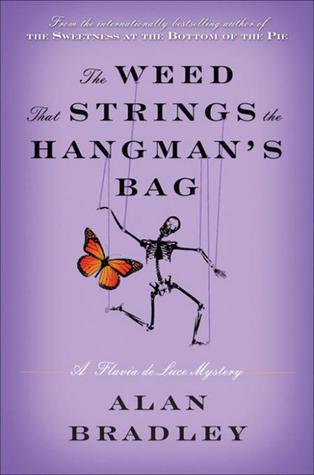What do you think?
Rate this book


386 pages, Kindle Edition
First published March 9, 2010
"You are unreliable, Flavia," he said. "Utterly unreliable."
Of course I was! It was one of the things I loved most about myself.
Eleven-year-olds are supposed to be unreliable. We're past the age of being poppets: the age where people bend over and poke us in the tum with their fingers and make idiotic noises that sound like "boof-boof"—just the thought of which is enough to make me bring up my Bovril. And yet we're still not at the age where anyone ever mistakes us for a grown-up. The fact is, we're invisible—except when we choose not to be. (p 112)